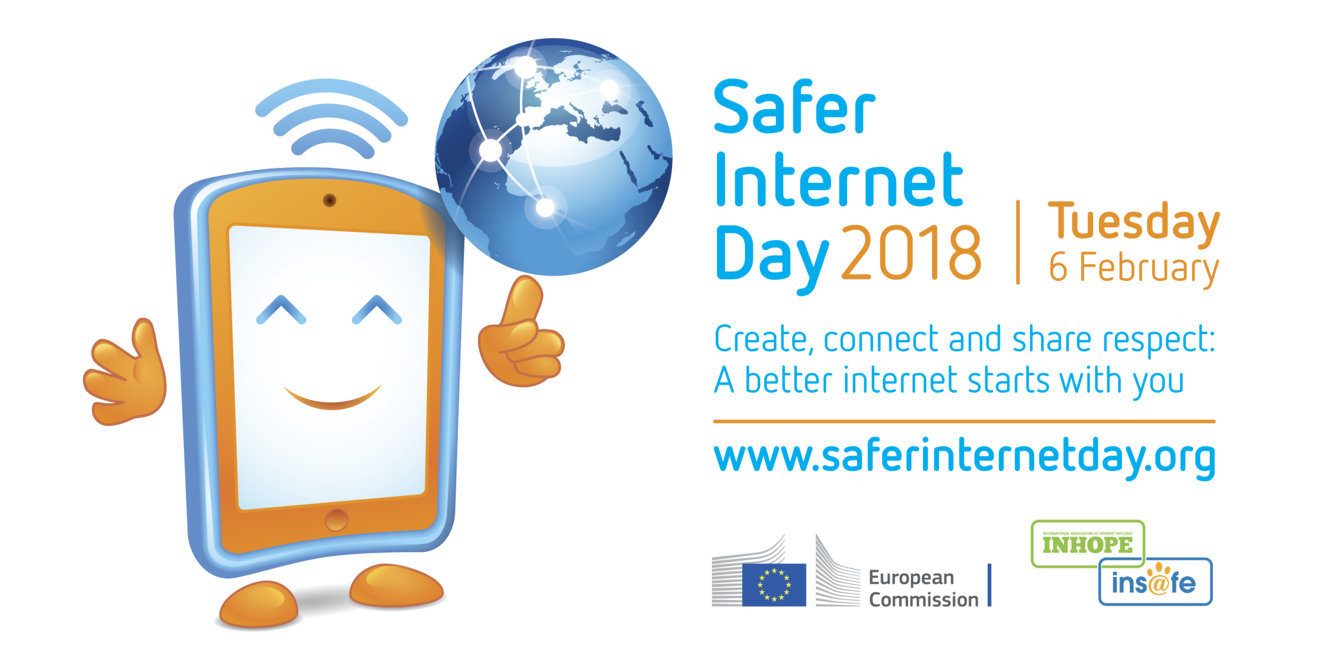Today we celebrate Safer Internet Day, the International Day of Safe Surfing. An important issue that, as the years go by, is of increasing interest to the young and very young who try their hand at using networked devices. Internationally, particularly in a hundred countries, this day is celebrated with events dedicated to information: a device that surfs the Internet is undoubtedly something extremely powerful if you think of the many resources and features that through the connection offers its users. But such power goes hand in hand with danger, as the network is full of pitfalls, of all kinds and potentially harmful to users of all ages.
This year Safer Internet Day is characterized by the slogan “Create, connect and share respect: a better internet starts with you” and through its initiatives aims to highlight all forms of hatred and violence that circulate through the web. One out of three young people knows that the web is full of content that glorifies violence: unfortunately this awareness is the consequence of having been a victim or a spectator of inappropriate content and behavior. Hate messages, so-called hate speech, have been recognized by one third of young people, half of whom, however, have never taken a stand and have done nothing to defend the victims or otherwise report the incident. These are “passive responses”: you ignore the problem and hope it will resolve itself. In the case of victims, in a quarter of cases they do not talk to anyone about the experiences that upset them or made them feel uncomfortable, and a tiny percentage (2%) reported inappropriate content or contact to the managers of the platforms where they came into contact with it [source, research “EU Kids Online for MIUR and Words O_Styles”].
It’s not only about hate words, other phenomena such as bullying have landed on the net: we then speak of cyberbullying and it immediately comes to mind that, given the personal nature of the devices connected, these phenomena have the way paved. This leads to the obvious need to inform not only young people but also adults, especially parents, who should be vigilant about the proper use of the web.
Hate speech and online bullying are probably the most talked about phenomena today, but there are many other web pitfalls that manifest themselves in different forms and are identified with specific terms. Generazioni Connesse – project entrusted with the organization of the Safer Internet Day in Italy and managed by a consortium of entities including the Ministry of Education, University and Research, the Guarantor Authority for Childhood and Adolescence, the Postal and Communications Police, Save the Children Italy, Telefono Azzurro, the Cooperative E.D.I., the University La Sapienza of Rome, the University of Florence, the website Skuola.net and the Movimento Difesa del Cittadino – is aimed at parents, children, schools and teachers with numerous tools to increase awareness of these pitfalls. Knowing how to recognize them is certainly a good starting point for denounce them: in this regard it is quite useful the “Vademecum” is quite useful in this regard, as it firstly confronts the reader with the characteristics of the above-mentioned dangers and then provides a detailed list, subdivided by region, of the organizations to be contacted when such phenomena are detected. For those who did not have the opportunity to participate in the eventsorganized on this particular day, we remind you that a safer Internet we can look for it every day, so do not miss the opportunity to inform yourself and learn about the power of this tool 😉.
Sara Avanzi

